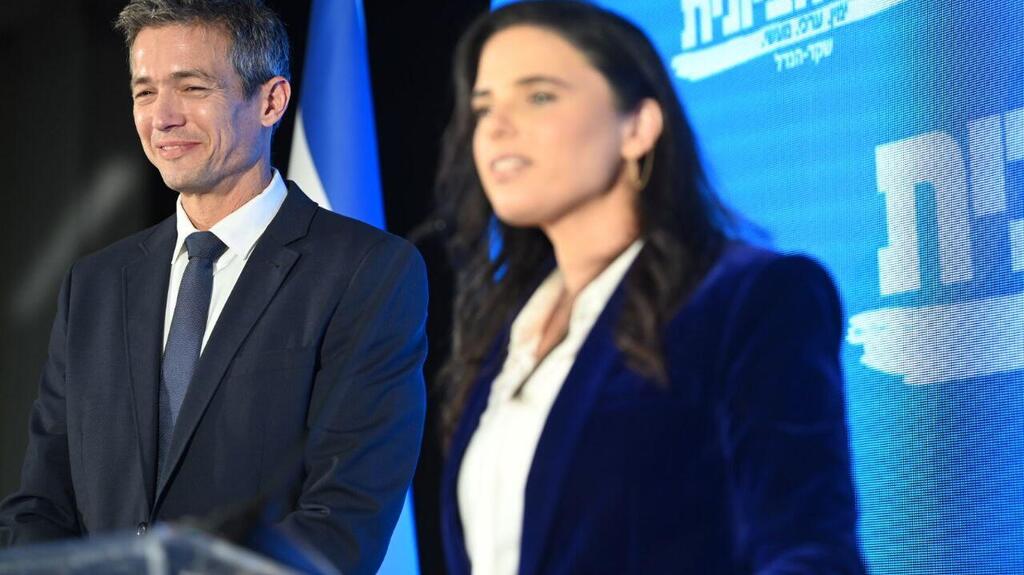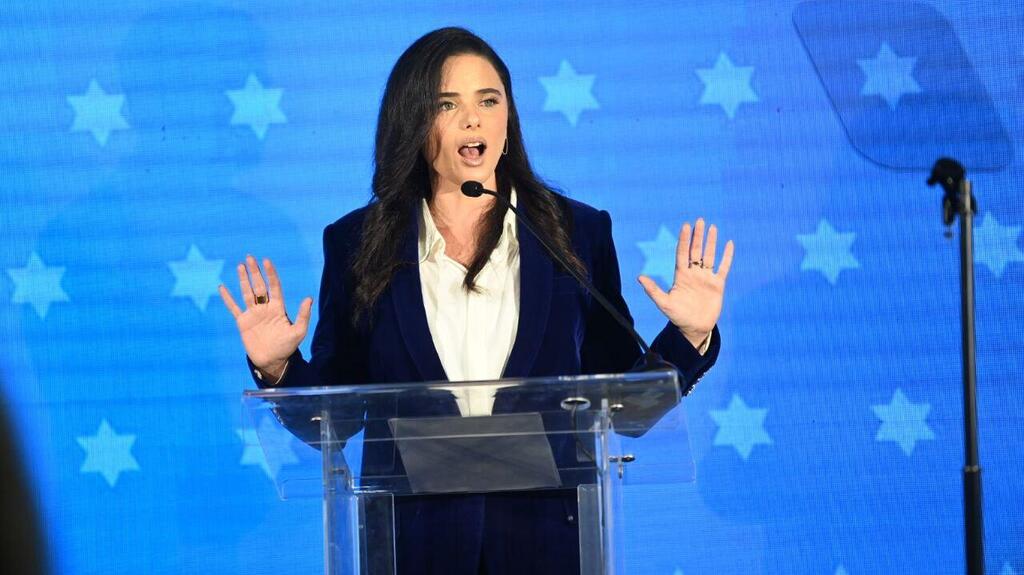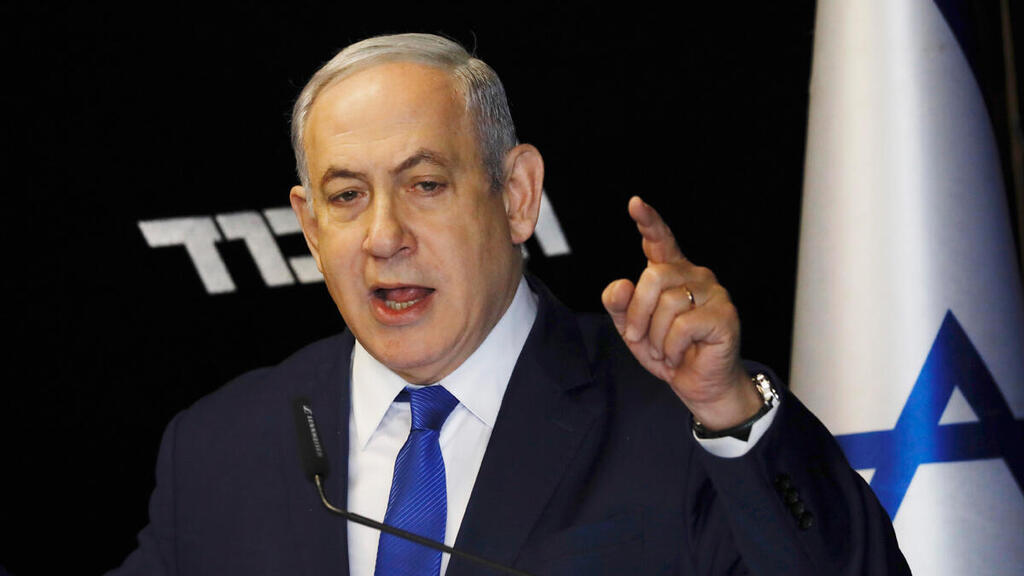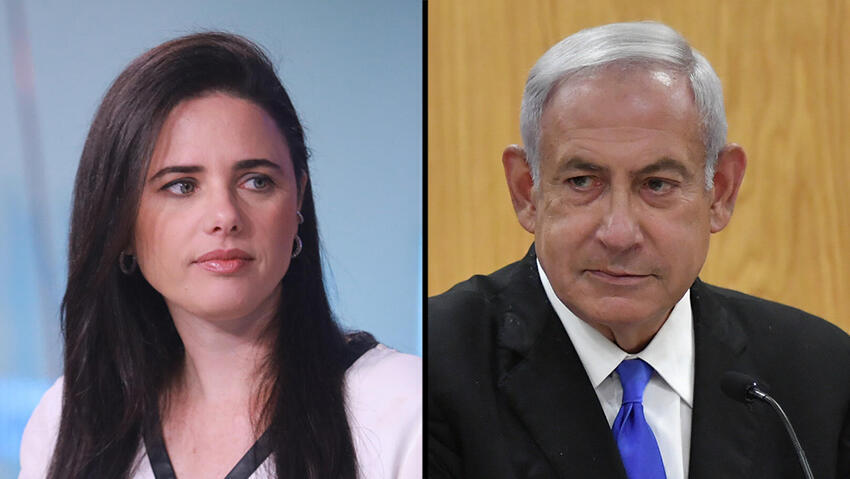Getting your Trinity Audio player ready...
Interior Minister Ayelet Shaked, who until recently was former Prime Minister Naftali Bennett’s No. 2 in the Yamina party, agreed on Wednesday on a joint run for the Knesset with Communications Minister Yoaz Hendel and his two-MK Derech Eretz party.
Their decision to run together as the Zionist Spirit faction in the November 1 election is seen as increasing Opposition Leader and Likud chairman Benjamin Netanyahu’s chances of returning to the Prime Minister’s Office.
But Zionist Spirit leader Shaked on Saturday evening presented the party as an alternative for right-wing voters who are opposed to Netanyahu and what she called “his extremist political partners,” which includes the Religious Zionism party led by MK Bezalel Smotrich and the Otzma Yehudit party led by MK Itamar Ben-Gvir. The latter two men are also considering a joint run for the Knesset.
“The Israeli Right is really not just [Likud MK] Miri Regev, Benjamin Netanyahu, Smotrich and Ben-Gvir,” Shaked said during an interview with Channel 12 on Saturday.
“I’ll campaign until the end and we’ll achieve a good result. There is a large part of the public that is looking for this Zionist Spirit, that wants a proper government and does not want to be held down by Smotrich’s machine of hate or the whims of Netanyahu. This has a place in Israeli society and we represent it,” Shaked continued.
The Knesset voted to dissolve itself on June 28, and new alliances and parties are being formed ahead of the election in November. Bennett announced that he wouldn’t run in the election, leaving Shaked as head of a party that according to the polls didn’t have much of a chance of passing the 3.25% electoral threshold for entrance to the legislature after angering its base by serving in a government coalition with left-wing and Arab parties.
Ashley Perry, a global communications strategist and a former senior adviser to Israeli government ministers, said the formation of Zionist Spirit gives Netanyahu a greater chance of realizing his goal of returning to the premiership.
He explained that Shaked said she was not ruling out serving under Netanyahu, and that nothing in the agreement between the two parties that make up the Zionist Spirit faction precluded the possibility.
Shaked said on Saturday, “Netanyahu is the head of the Likud party. I don’t think you can disqualify the votes of over a million people. Likud is a possible partner in a unity government, and Netanyahu is its leader.”
Perry said that if Netanyahu and his natural bloc win 61 seats in the 120-member Knesset, then he will be prime minister. If he wins close to that and Shaked-Hendel and company pass the electoral threshold, “I think that they would cross over [and join a Netanyahu-led government] – not overly happily, but I think they would, given the numbers.”
Dr. Ilana Shpaizman, a lecturer in the Department of Political Studies at Bar-Ilan University in Ramat Gan, near Tel Aviv, also believes that Zionist Spirit would most likely join Netanyahu in a coalition despite Hendel having long opposed this.
“Hendel is probably not fond of the idea but given his record of changing parties, he would probably join as well,” she said.
She added that whether they would serve with Netanyahu or not, Zionist Spirit running for the Knesset probably has a positive effect for Netanyahu “because the party’s voters are part of the Netanyahu bloc, so the anti-Netanyahu bloc will lose votes,” she said.
Depending on the results of the election, said Perry, Zionist Spirit could also join a government under Yesh Atid chairman and current interim Prime Minister Yair Lapid. “It wouldn’t be Shaked’s first-case scenario, but I think that [Derech Eretz No. 2 Zvi] Hauser and Hendel would have less of a problem with this,” he said.
Perry said that Yamina and Derech Eretz are like-minded parties that could help each other pass the electoral threshold.
Shpaizman said that the secular Shaked could not join with an existing party because Religious Zionism is too radical (religiously) for her, and the Likud does not want her.
Moreover, added Shpaizman, “she wants to appeal to right-wing voters who do not want Netanyahu and who perhaps are more liberally religious and do not want to vote for Smotrich.”
Perry said that Zionist Spirit’s typical voters are right-wing but not extreme Right, and not necessarily “religiously right” in the sense of being close to ultra-Orthodox observance.
He added that there is a crowded field of parties appealing to right-wing voters.
Although Zionist Spirit edged across the electoral threshold in the first poll conducted after the merger was announced, Shpaizman believes it has little chance of doing so on November 1.
The story was written by Debbie Mohnblatt and reprinted with permission from The Media Line





